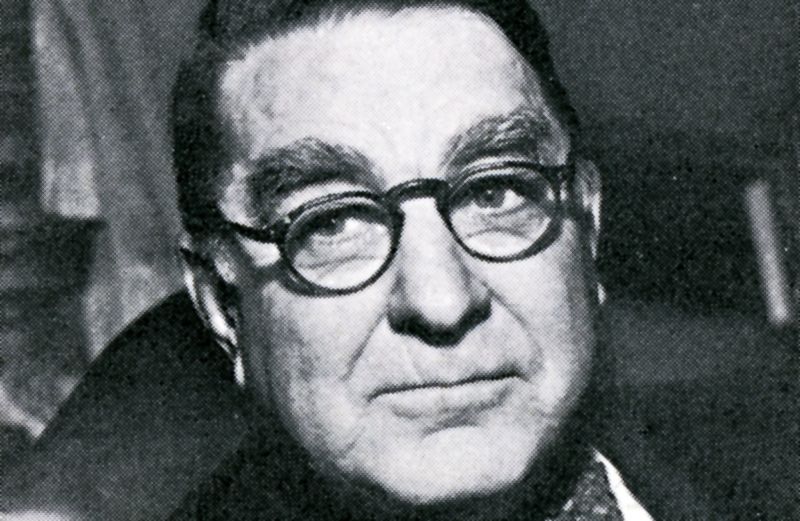Baseball is my business, but it is much more than that. I still get the same thrill out of the game I did as a kid. In our Pittsburgh organization today there are nearly 400 players, most of whom I know personally, as well as many of their fathers, mothers, sisters, brothers, aunts and uncles.
I’m no father to these boys—they don’t want that. I am their employer, and they have to make good. But I also want to be their friend and will do everything I can to help them.
These players have ability—all of them. Many will play in the Major Leagues if they perform up to their capacities. It is my job, and that of our managers and coaches, to bring men to their best—to help make ability and capacity meet.
Some of the players will come through. Others won’t.
What makes the difference?
There are three qualities which seem to me to be highly valuable, if not indispensable, to success.
First, a man should feel that the job be is doing is worthwhile. A man can sell something better if he believes in it. The fact that the product is worthwhile dignifies his efforts; he is continuously challenged to do better.
Perhaps there are some who feel that baseball shouldn’t occupy the important place that it does today in the life of our people. Yet how a nation acts on its playfields—and at its diversions—gives an accurate picture of the character of its people.
The United States is a sports-loving and sports-indulging nation. Over 20,000,000 boys follow the records of great athletes closely and find many heroes to worship in the professional game. The press, radio and television daily give wide coverage to contests.
Since baseball is such a permanent enterprise, responsible folk must give close attention to the health of this sport.
It is simply great, therefore, if a ball player believes that what he is doing has purpose and dignity and is worthwhile.
The second point is even more important, and is best illustrated by two contrasting stories …
Many years ago, when I was managing the St. Louis Browns, I lost a game to Detroit in the last half of the eleventh inning in a very unusual manner—nothing else like it in the record books anywhere.
Detroit came to bat in the last half of the eleventh inning in a tie-score game, two men out and nobody on the bases, when a player named Ty Cobb came to bat.
Cobb got a base on balls and then scored the winning run without another ball being pitched. By sheer adventure and skill he forced two wild throws by St. Louis infielders.
His daring at first base, his boldness and skillful turn at second, his characteristic slide ten feet before he reached third, his quick coordination following his slide—all brought about four “breaks” in his favor. He made what amounted to a home run out of a base on balls.
In the very same game, there was a player on my team by the name of Walker, a man who had all the physical qualities to be a great player. During a game in Beaumont, Texas, the following spring, Walker hit what should have been a home run—and was thrown out at third.
Walker’s slow start to first base, as he watched his hard line drive fall between the left and center fielders, cost him 20 feet. Next, he lost another 30 feet making too wide a turn around first toward second base.
Then, seeing the elusive ball on its way to the Texas prairies (the left field fence was down for repair), he slowed to a jog trot. This easily cost him still another 50 feet, and he was now 100 feet behind schedule.
Suddenly the ball struck some object, a board or stone, and bounced back into the hands of the surprised center-fielder, a boy by the name of Al Nixon. Nixon’s quick turn and his strong arm brought the throw toward third.
Walker, seeing that a play could now be made on him, put on a great burst of speed. He made a fall-away slide to the right and into the very hands of the third baseman. Walker actually tagged himself out.
Exclamatory groans came from our bench. One chap in disgust kicked over the water bucket, and another threw a bunch of bats helter-skelter into the air.
In discussing the play later, however, everyone agreed that if Walker had not made any one of four mistakes—the slow start from home plate, the wide turn at first, the walking trot around second, and the slide to the wrong side at third— there could have been no play upon him.
And if he had made all four correctly, he would have scored a home run standing up.
What is the difference between Cobb and Walker? They had about the same age, weight, height, and running speed. Walker had a stronger arm than Cobb and more power at the bat. Yet one rose to unparalleled fame; the other lives in obscurity.
Cobb wanted to do something so much that nothing else mattered; Walker punched the clock.
A consuming desire to be great is the important second quality that will help make ability and capacity meet. This desire can turn a faulty, youthful hitter like Enos Slaughter into a great batsman. It can produce a good base runner out of a slow runner.
The greatest single factor that makes a championship player is his desire to be one, and the greatest quality of a championship club is a collective, dominating urge to win.
Luck? Yes, there is luck in all athletic contests, due to causes we don’t control and cannot anticipate. Usually, good luck is the by-product of planned effort. Bad luck will feature any club which is satisfied with mediocrity.
A man who has the bad habit of looking at his batted ball, which he can no longer direct, or follows a course that carries him 30 feet too far, or assumes victory before he has it, shouldn’t charge his failure to “bad luck.”
Baseball clubs can have injuries and illnesses and military drafts and “bad breaks,” but I think these should be regarded as merely incidents on a highway of progress.
The greatest devotion to high purpose that I know anything about was exemplified in the Life of a Man who died 2,000 years ago. And He lived only 33 years.
It is significant to me that when Jesus was only 12 years of age, He so knew His direction and purpose that He could say to inquiring parents, and respectfully too: “Wist ye not that I must be about my Father’s business?” Luke 2:49
In common parlance, Christ had many bad “breaks”—born in a barn; crucified in the open between two thieves; and during His life many others. Yet He left a religion which—if believed in and followed with devotion—could solve personal, community and international ills.
There is a third quality which makes a difference in men …
I have seen many players who have had the material requisites for greatness—youth, size, speed, power, and even desire—and yet fail utterly. Such cases are tragic, indeed, where the boy wants to be great, his people counting upon him, and yet he cannot master the little skills which go with excellence.
He cannot learn to hold men on base, or he cannot slide, or he over-strides at bat, or he cannot get a proper lead. There are a hundred so-called “little” things that mark the difference between the ordinary and the exceptional.
I like to go into a dentist’s office where the magazines are current. Somehow, I anticipate newer techniques, better treatment. I like to go into a church of any faith, where the builders have had in mind a beautiful edifice. Not elaborate necessarily, but with attention to detail.
Once inside, the pews, the chancel, the pulpit, the choir loft, the organ and the windows—all and everything—seeming to combine to produce a sense of worship, even without music or without a word being said to anybody.
I like that. You can feel at once that you are in a place where you are already getting what you need—spiritual medicine.
I like players who are masters of detail in their work. Men acquiring these little skills please everybody and “sell” themselves. They” make good.
I shall be very happy when the time comes in Pittsburgh that we have boys who, first of all, feel that they are doing something worthwhile. Second, as gentlemen, they want to win a pennant so much that they never ask the price, but pay it.
And, third, I shall be gratified beyond expression if they are skilled, real masters of technique, both on offense and on defense. For then, the Pittsburgh Club will be highly rated in the National League and they won’t scare in the World Series.
For more inspiring stories, subscribe to Guideposts magazine.






